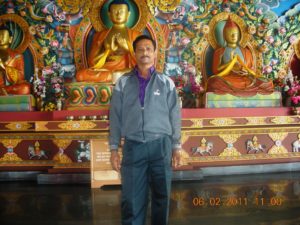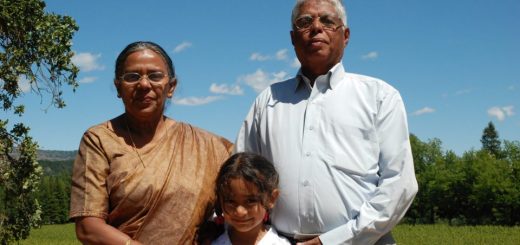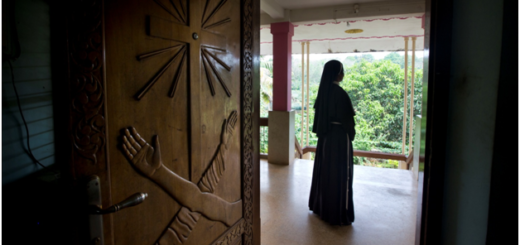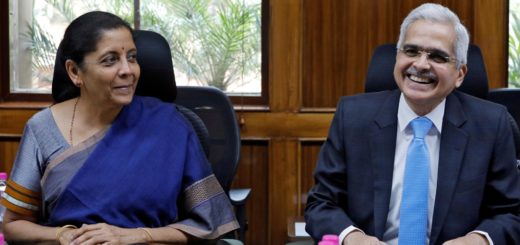THE DISTURBING IMPLICATIONS OF THE CUSTODIAL DEATH OF FR STAN SWAMY: MORE TO COME

THE TELEGRAPH CALCUTTA
15 July 2021
Anup Sinha
(Former professor of Economics, IIM Calcutta)
 Fr Stan Lourduswamy’s death on 5th July has evoked spontaneous pain, frustration and criticism, from all quarters including the international forum, of the Union Government (which has been framing contentious laws); and also of our legal system. RTI activist and anti-graft crusader Anjali Bhardwaj termed Fr Stan’s death an "institutional murder". Fr Stan fought for the rights of tribals whose jungles and lands were systematically taken away by the then BJP-led goverment in Jharkhand. Thousands of tribal youths were imprisoned for years without bail because they opposed the destruction of dense forests and handing over of their land to large Corporates and industrial projects. Fr Stan exposed this. So corporates in cahoots with the government of the day, got Fr Stan branded as a state enemy and put him behind bars under the Unlawful Activities Prevention Act (UAPA), to put a stop to all opposition to their land-grabbing drive.
Fr Stan Lourduswamy’s death on 5th July has evoked spontaneous pain, frustration and criticism, from all quarters including the international forum, of the Union Government (which has been framing contentious laws); and also of our legal system. RTI activist and anti-graft crusader Anjali Bhardwaj termed Fr Stan’s death an "institutional murder". Fr Stan fought for the rights of tribals whose jungles and lands were systematically taken away by the then BJP-led goverment in Jharkhand. Thousands of tribal youths were imprisoned for years without bail because they opposed the destruction of dense forests and handing over of their land to large Corporates and industrial projects. Fr Stan exposed this. So corporates in cahoots with the government of the day, got Fr Stan branded as a state enemy and put him behind bars under the Unlawful Activities Prevention Act (UAPA), to put a stop to all opposition to their land-grabbing drive.
Fr Stan used his Sociology Masters background to work ceaselessly on identifying and implementing various provisions our Constitution on tribal rights/welfare. His movement to raise awareness of tribals and to empower them, was all by Constitutional means. This made him a thorn in the flesh of large corporates and those with vested interests who wanted to grab tribal lands by hook or crook. Fr Stan was arrested by the National Investigation Agency (NIA) in October 2020, under the UAPA, in connection with the Elgar Parishad/Bhima Koregaon case, which alleges that he and the other 15 co-accused have had links with the banned CPI (Maoist). Incidentally UAPA law was passed by the Congress regime in 1967 and later amended by the NDA Government in 2019 to make it more stringent to indict even individual activists as Terrorists. Significantly, the conviction-rate in UAPA cases is under 2%. This proves in about 98% of cases, this law is applied to lock up individuals (who are an eyesore to the government) indefinitely without any trial.
Many believe that the legal team hired by the Church was not up to the mark to release/get bail for Fr Stan. Instead of using its wherewithals to get the best lawyers to free him from jail (it is not short of money!), the Church went overboard to garner national and international sympathy. It was driven by the mirage that international community would put pressure on the Modi Government to release Fr Stan. But nothing like that happened. Fr Stan was sacrificed on the altar of domestic corporate primacy and International Relations expediency – where business matters, not principles to protect one Fr Stan.
The Judiciary too turned a blind eye to Fr Stan’s lawyers’ pleas of his advanced age and infirmity. How could a frail 84-year-old Fr Stan be a threat to India’s security? It appears basic sanity and compassion left our Judiciary. The Supreme Court of India’s 20 October 1977 had ruled: “Bail is the rule and jail the exception. This ruling has been blissfully ignored by lower courts. On 1 February 2021, the Supreme Court had ruled that an accused is entitled to bail even under stringent anti-terror and narcotic laws when there is little possibility of the trial being completed early. It is not known whether Fr Stan’s legal team harped on these judgements.
On hindsight, did Fr Stan pay with his life for the numerous instances of injustice committed by the Indian Church on the Laity and its utter reluctance to take a stand in matters of justice? There are instances galore. The church has chosen justice selectively by not lifting a finger to stop Sr Lucy Kalapura’s expulsion from her FCC congregation. Its turning a blind eye to Bishops (?) Franco Mulakkal and K.A.William and their ilks despite media censure and court cases regarding their alleged sexual crimes and financial corruption, including murder are clear instances of the Church being reticent about justice, except when its own interest are hurt – the recent demolition of a Syro-Malabar church in Delhi by Delhi Development Authority. It is impossible that the same church can stand with Franco Mulakkal & Co. and Fr. Stan at the same time. It is either Barabbas or Jesus. History repeats itself – the Church has been eerily indifferent to Fr John's plight and chosen Barabbas.
In all probability Fr Stan's fight for the empowerment of the marginalised will be forgotten soon. They say public memory is short. Soon the Church will be busy to get Fr Stan declared a martyr and fast-track his stainhood for more moolahs! Several colleges/universities might even set up Foundations in Fr Stan’s name!!
In this context, the following article which appeared in today's editorial of The Telegraph Calcutta, is very clinical to arouse ourselves from our slumber. The article reminds one of First they came …" the poetic form of a 1946 post-war confessional prose by the German Lutheran pastor Martin Niemöller (1892–1984):
First they came for the socialists, and I did not speak out—
Because I was not a socialist.
Then they came for the trade unionists, and I did not speak out—
Because I was not a trade unionist.
Then they came for the Jews, and I did not speak out—
Because I was not a Jew.
Then they came for me—and there was no one left to speak for me.
Isaac Gomes, Associate Editor, Church Citizens' Voice.
The custodial death of Father Stan Swamy, a physically frail octogenarian social worker, left me thinking, as a citizen, about its larger significance. It is obviously something to be deeply ashamed about. It represents the cruelty, callousness and violence of the State at its worst. Not all Indians will share this same feeling, though. Many will defend it as collateral damage in the fight against terrorism and political violence. Others will remain silent with the plea that it does not concern them. A few will remain significantly silent, signalling a strong endorsement of the event. I thought of splitting my feelings into a number of arguments that lead to rather disturbing conclusions. Such deaths have occurred many times in the past, and will occur again in the future. The Stan Swamy case is only a recent example that can be analysed.
My first argument pertains to treating the case as not one of active killing, like in an encounter, but a case of letting someone die consciously, ignoring the cause leading to the death. Philosophers and ethicists do make a distinction between killing and letting die. There could be many ambiguities involved. Since the latter is not an act of agency, it is considered by many — though not all — as being a little more defensible than outright killing, and hence less morally reprehensible. In the process of letting a person die, there could be excuses like forgetfulness, or inability to gauge the seriousness of the cause leading to the death, or even ignorance about the facts and context of the case. However, there are opposite possibilities too. The act of letting a person die could be very cold and calculating, where the person or persons who could have stopped the death have something valuable to gain. The gains could be financial benefits, romantic relationships, power or revenge. Therefore, the context and circumstantial evidence can be quite important in morally judging such an outcome.
My second argument is about context. In this case, the context was crystal clear. The incarcerated person was awaiting trial for an inordinately long time, he was ill, he was old. The reason for his being arrested was in connection with a high-profile case of conspiracy and violence. No one in authority, starting from the prison officials, the prosecutors, the investigators, the courts and government officials and ministers could claim ignorance or forgetfulness. Indeed, if anything, there was a denial of access to something as simple as a drinking straw for a man whose hands were no longer strong and stable. Hence, it is well nigh impossible to believe that no one knew where things were heading. The violence lay in the denial of basic human needs. One may argue that in prisons people are supposed to be deprived of certain privileges that a free citizen enjoys. This would also include the freedom not to be physically coerced. Should all prisoners face the same degree of coercion? If we include children in juvenile homes, women and old people all as a homogeneous crowd that can be meted out the same set of denials, then we are no different from a Nazi Germany or a Stalinist Russia. The issue is about certain human rights no State can deny, especially when the prisoner has not even been tried and found guilty of the charges levied against him.
My next argument leads to the question: what if he had actually participated in a conspiracy to create political chaos and murder? Why should he be treated with leniency in jail? This argument is naïve to say the least, vicious at the very worst. A person is not found guilty beyond reasonable doubt unless tried by a court of law. The trial must follow due legal processes. In this case, Stan Swamy was far away from being tried or questioned. The charges against him were not fully framed even months after him being held. Yet it was supposed to be a case of the highest importance and sensitivity. Those who think he was indeed guilty, and some form of extra-legal or divine justice was meted out to him, have no idea of the sanctity of the rule of law in a civilized society. There are many people in our nation who believe in extra-legal justice: the prevalence of lynching, encounter deaths, honour killings and murder are just a few examples. These people have an extraordinary distrust in the legal system: its timely closure of cases, its sense of fairness and its vulnerabilities. It is symptomatic of a malfunctioning democracy.
Another `argument' worth noting is the complete absence of any argument: an eerie silence from the vast majority of citizens. Does it not concern them, or does one not want to get involved in matters of statecraft? A silence can signify many things. It can immediately be taken as a sign of ignorance, not knowing all the details of the matter and hence not considering it prudent to voice an opinion. Usually, these people never get fully informed, simply because they do not want to be. The other reason for silence could be a fear of taking sides, or an absence of any concern for other people. These positions invariably help the political establishment: the less noise the better. Finally, there is another reason for silence, and that is a tacit endorsement of what happened. It reflects an extraordinary degree of arrogance: we can do it and nobody cares or dares to say anything against it. It gives the political establishment more confidence to try out similar projects of letting die. Political goals can be achieved more easily with the silence of those who might have raised their voices in opposition. The stifling of dissent, the shying away through special draconian laws from the natural course of justice, direct and indirect violence — all point to a large democratic deficit. New experiments can be carried out and the scale of violence easily escalated if the need arose.
The final argument, possibly the most common in contemporary India, is the use of examples from the past, or from other countries: did you see what Mao did? Do you know what Aurangzeb did? Do you know what Indira Gandhi did? Did you protest earlier? These examples are supposed to justify current acts that are similar. However, as a citizen, I live in the here and now. I am not interested in the history of violence when morally judging a contemporary act of cruelty. In any event, historical examples can only be prompts to make us a little more decent and compassionate, not justify brutality. Examples and counter examples, though illustrative on occasions, are never an adequate substitute for an argument. The case of Stan Swamy will be forgotten quite soon, as have been thousands of similar cases of people who have died at the hands of the State, people whose names one never ever heard of. State violence will also remain. However, as citizens, we need to interrogate the stony silence of the powers that be. Otherwise all of us become morally complicit in condoning acts of violence that are increasing rapidly in India We ought to have the moral courage and human decency to apologize with folded hands to the memory of Father Stan Swamy. But we will not. Does anyone really care?

















The write up in The Telegraph, July 15 by Anup Sinha in the editorial captioned 'The Disturbing Implications of The Custodial Death of Fr Stan Swamy' is very analytical of the system in which we all live. Anyone can be accused until proven guilty, under UAPA is certainly very threatening and curtails human freedom to express views or opinions and to stand even for a just cause. The great silence of the Judiciary in the case and the Church hierarchy made Fr Stan's case 'Letting him die."
The Analysis made by Anup Sinha should be taken seriously. Further to this analysis, Mr Isaac Gomes' reflection on Fr Stan's 'letting him die' with its application to some relevant issues of our time, Is very contextual. What is UAPA to common citizens, the policy of 'Letting an innocent die' and not lifting a finger to fight such cases is throttling the prophetic voices in the Church. It's high time that all concerned raised their voices against such atrocities to save lives rather 'Letting the innocent die'.
It's a great analysis by Mr Gomes of custodial death in Jail. Amidst the silence of concerned authorities, the voice of Fr Stan will echo through the walls of the Church and institutions which are called to give prophetic witness to the causes of dehumanisation, injustices and various forms of oppression inflicted on innocents. When secular media has taken up the case of Fr Stan seriously, why is the Church Hierarchy silent? It's time to voice the injustices, the uncalled for atrocities and victimisation of the innocent.